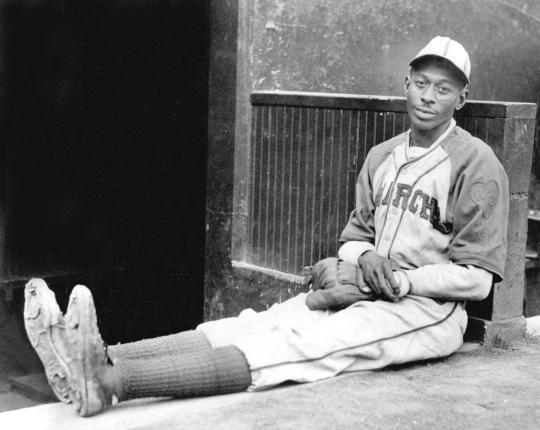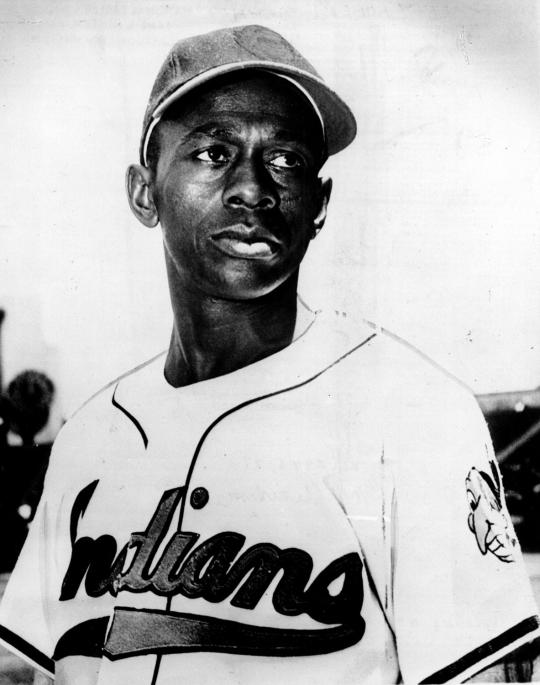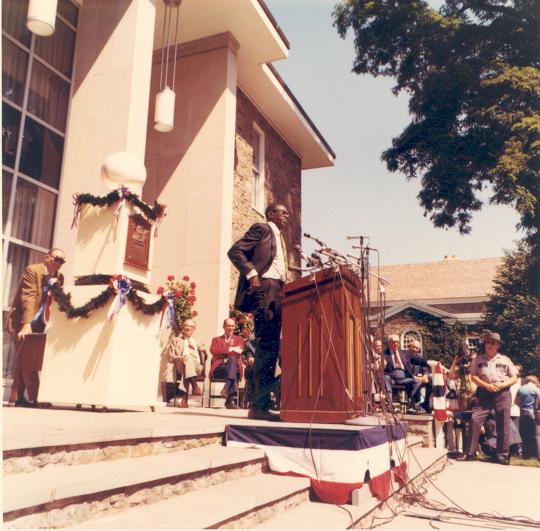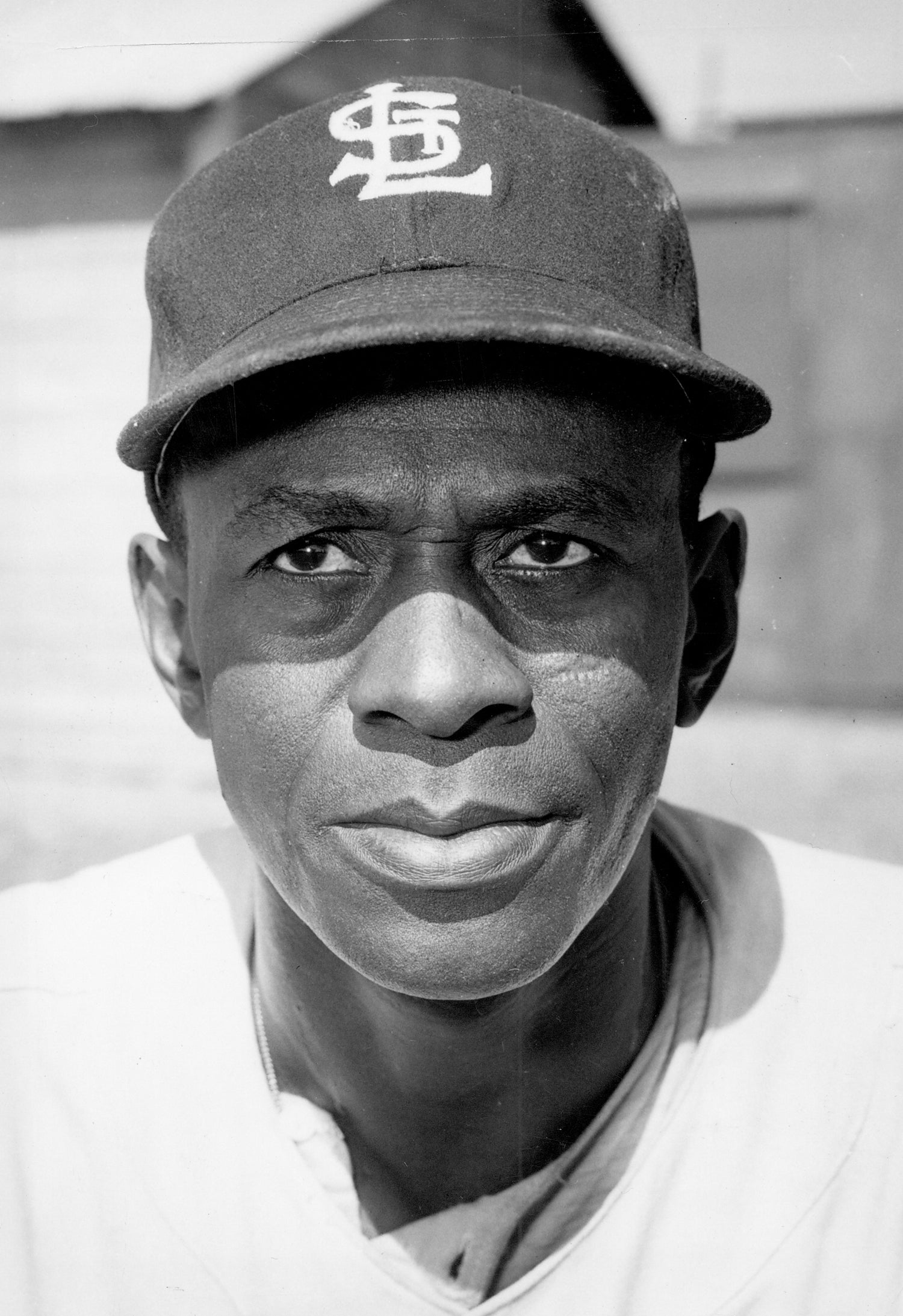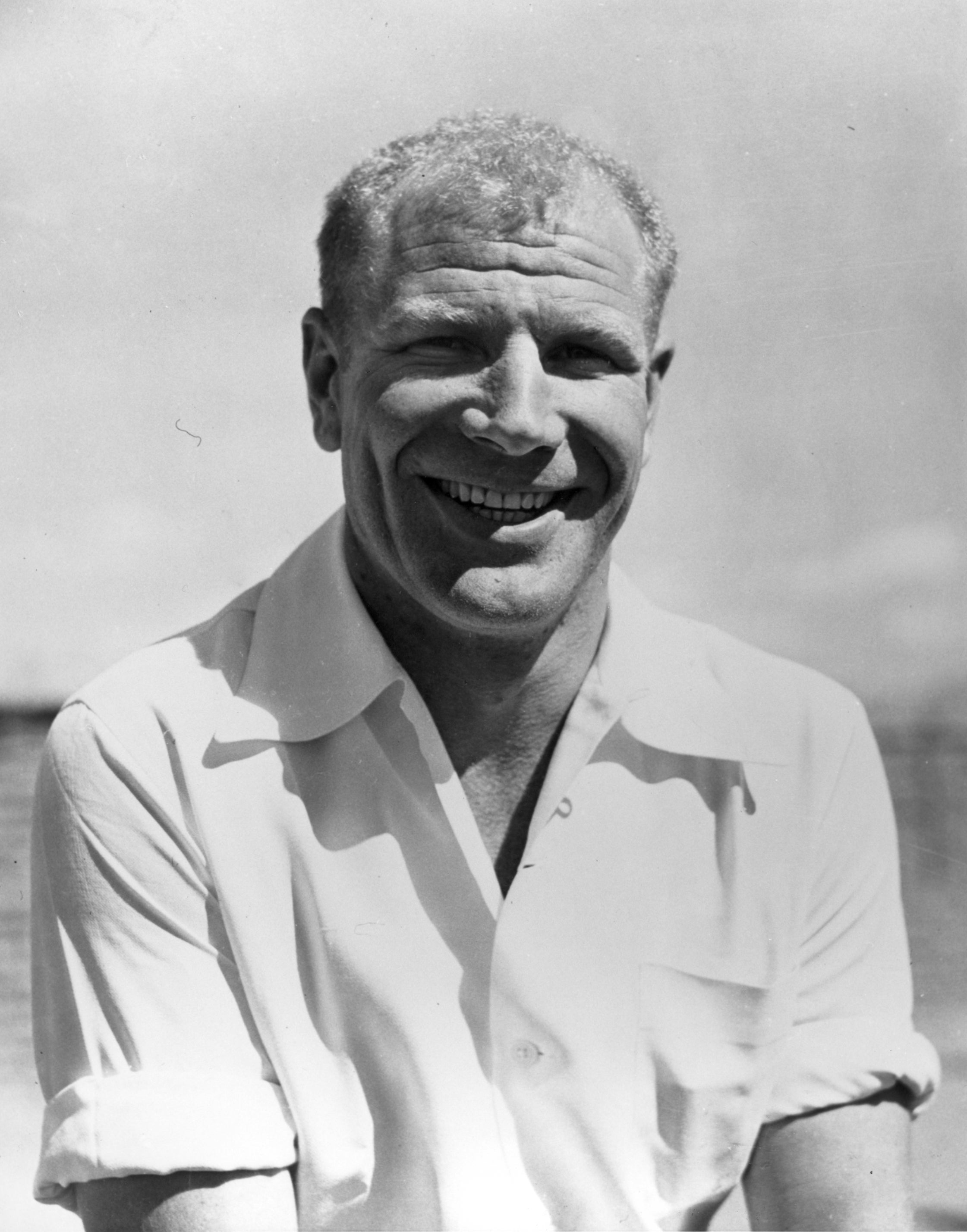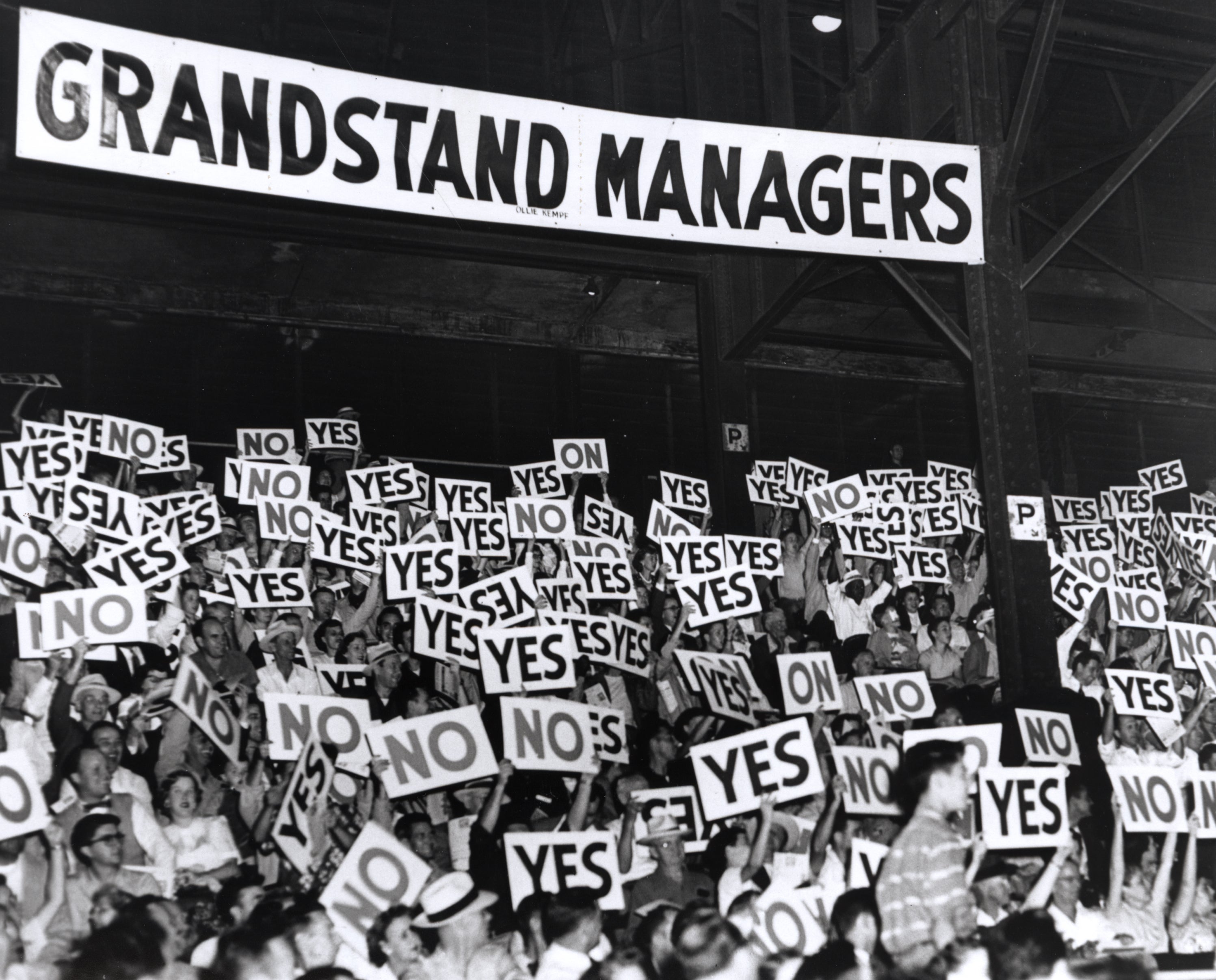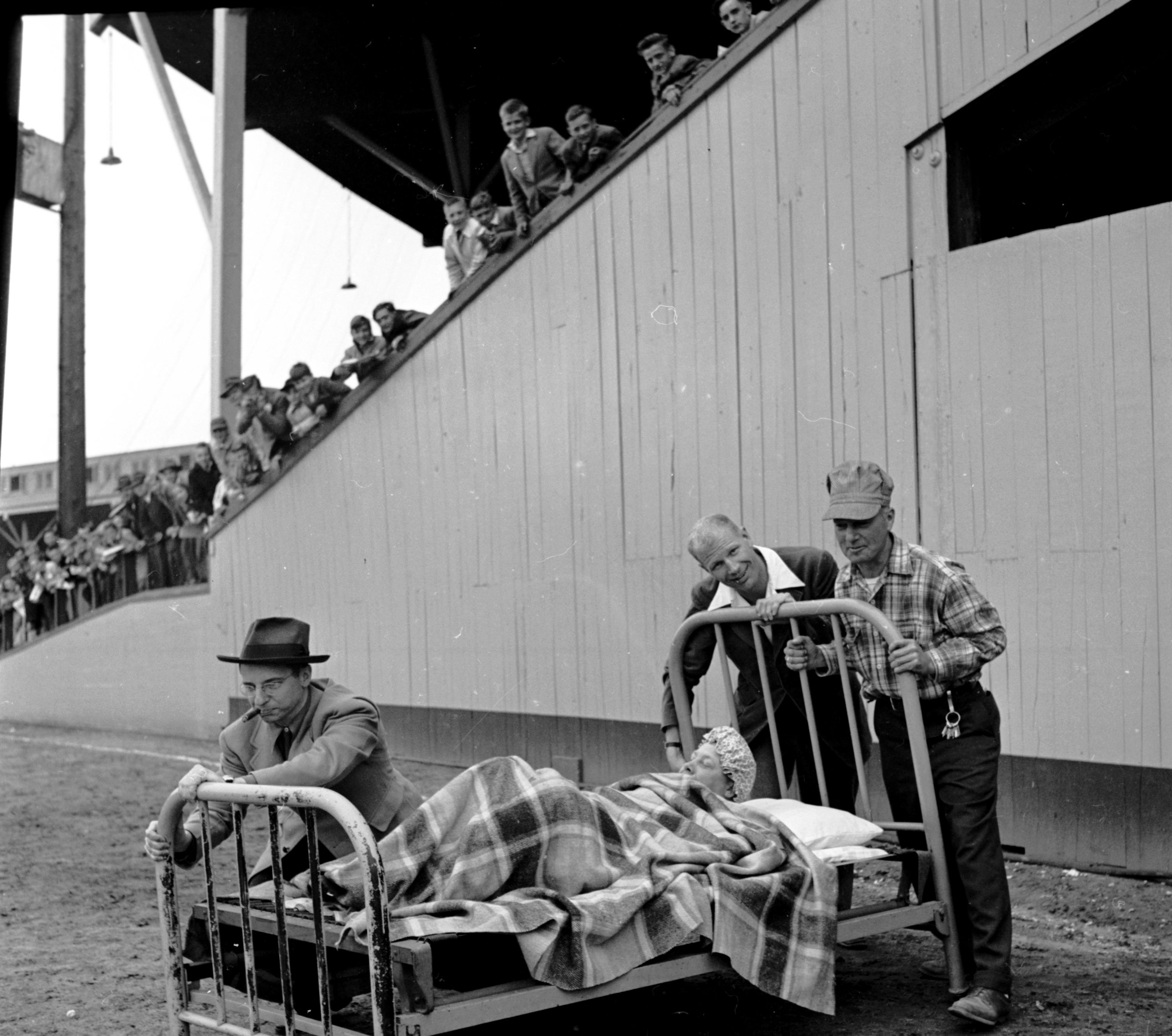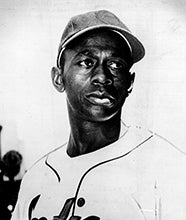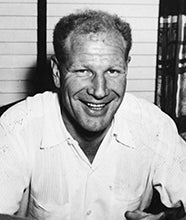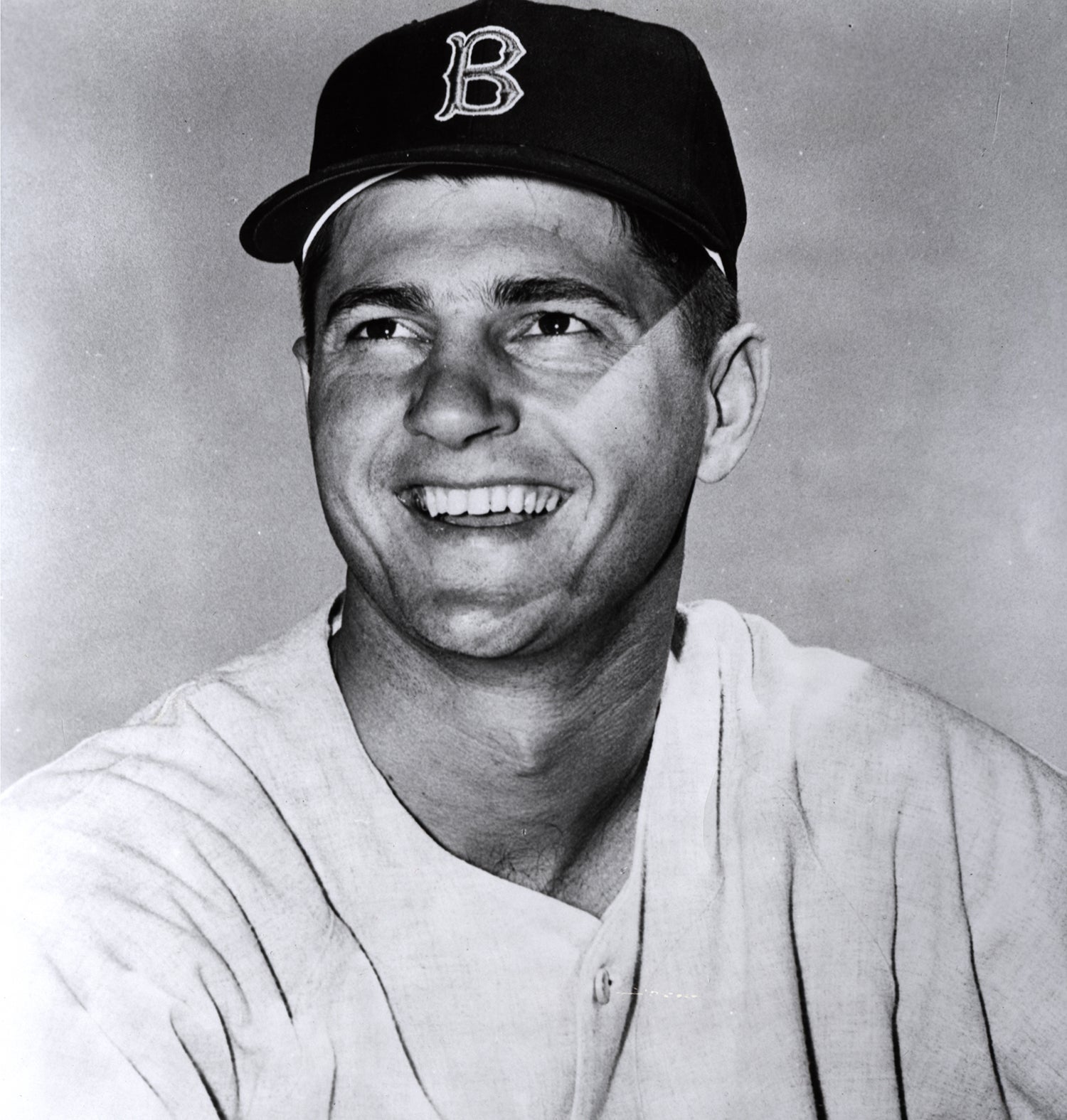- Home
- Our Stories
- Satchel Paige pitches for A’s at age 59
Satchel Paige pitches for A’s at age 59
Satchel Paige never worried much about Father Time.
“Age is a question of mind over matter,” begins the apocryphal quote attributed to Paige. “If you don’t mind, it don’t matter.”
Paige, as he usually did, proved his words true. On Sept. 25, 1965, Paige became the oldest player to appear in a big league game when he started on the mound for the Kansas City Athletics.
Paige, born (according to most sources) July 7, 1906 in Mobile, Ala., dominated Negro Leagues baseball in the 1920s and 1930s when the color barrier prevented African Americans from playing in the AL or NL. By the time Jackie Robinson broke the barrier in 1947, Paige was 40 years old – yet still an effective pitcher.
Hall of Fame Membership
There is no simpler, and more essential, way to demonstrate your support than to sign on as a Museum Member.
Cleveland Indians owner Bill Veeck signed Paige midway through the 1948 season, making him the first Black pitcher in the American League. Paige went 6-1 with a 2.48 earned-run average down the stretch, helping Cleveland win the American League pennant and eventually the World Series.
“He took a chewing gum wrapper and put it down in front of the catcher and threw about eight out of 10 right across it,” said former big leaguer Mickey Vernon, who was Paige’s teammate with the Indians in 1949. “And he wasn’t lobbing them in either. He was putting some zip on them.”
Paige pitched for the Indians again in 1949, then for the Browns from 1951-53 after Veeck bought the St. Louis outpost in the American League. He was named to the AL All-Star Game roster in both 1952 and 1953, then continued to pitch in the minor leagues after being released prior to the 1954 season.
Paige’s pinpoint control allowed him to remain active into the mid-1960s. Then late in the 1965 season, A’s owner Charlie Finley signed Paige for one game. On Sept. 25, in front of 9,289 fans at Kansas City’s Municipal Stadium, Paige faced started against the Red Sox and faced 10 batters, “relaxing” in a rocking chair between innings. But Paige’s performance was no joke. He allowed a first-inning double to Carl Yastrzemski, but retired the Red Sox in order in both the second and third innings – including a strikeout of Boston pitcher Bill Monbouquette. Paige even came to the plate himself, striking out. Paige was removed to the game prior to the fourth inning, leaving the field to a standing ovation. In 179 big league games over six seasons – all after turning 42 years old – Paige went 28-31 with 33 saves and a 3.29 earned-run average. He was named to two All-Star Games with the Browns in the 1950s and finished 17th in the American League MVP voting in 1952. Paige returned to the national spotlight in 1971, when he became the first Negro Leagues player elected to the Hall of Fame by the Committee on Negro Baseball Leagues. Paige passed away on June 8, 1982.
Craig Muder is the director of communications for the National Baseball Hall of Fame and Museum

